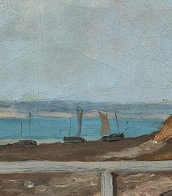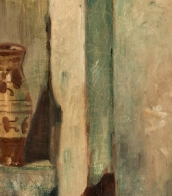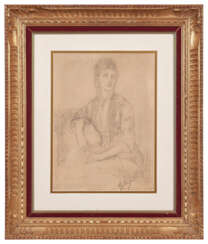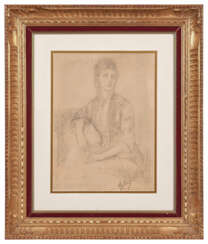александр кабанель (1823 - 1889)
.jpg)
Alexandre Cabanel was a distinguished French painter, celebrated for his refined and idealized representations of classical and historical subjects. Born in Montpellier in 1823, he rose to prominence through his skillful integration of detail and romanticized aesthetics, typical of the academic art tradition of the 19th century.
Alexandre Cabanel's art was characterized by its exceptional polish and precision, qualities that earned him numerous accolades and the favor of important patrons, including Napoleon III. Perhaps his most renowned work, The Birth of Venus, epitomizes the lush idealism of his style. First showcased in the 1863 Salon, this painting captivated audiences and was promptly acquired by Napoleon III, underscoring Cabanel's central role in the artistic preferences of the Second Empire.
Throughout the 1860s, Alexandre Cabanel's influence expanded as he took on significant roles, such as a professorship at the École des Beaux-Arts, and his election to the Institut de France. His career was marked not only by his successful paintings but also by his active participation in the Paris Salons, where he often served as a jury member, advocating for traditional art standards against the emerging Impressionist movement.
Alexandre Cabanel was also a notable teacher, mentoring a generation of artists who would carry forward his academic principles. His workshop was a pivotal training ground for many who would become significant figures in their own right.
For collectors and art experts, Alexandre Cabanel's work remains a pinnacle of academic artistry, encapsulating the era's ideals of beauty and craftsmanship. To stay updated on exhibitions and auction events featuring Cabanel's works, consider signing up for specialized newsletters and alerts.

.jpg)
Alexandre Cabanel was a distinguished French painter, celebrated for his refined and idealized representations of classical and historical subjects. Born in Montpellier in 1823, he rose to prominence through his skillful integration of detail and romanticized aesthetics, typical of the academic art tradition of the 19th century.
Alexandre Cabanel's art was characterized by its exceptional polish and precision, qualities that earned him numerous accolades and the favor of important patrons, including Napoleon III. Perhaps his most renowned work, The Birth of Venus, epitomizes the lush idealism of his style. First showcased in the 1863 Salon, this painting captivated audiences and was promptly acquired by Napoleon III, underscoring Cabanel's central role in the artistic preferences of the Second Empire.
Throughout the 1860s, Alexandre Cabanel's influence expanded as he took on significant roles, such as a professorship at the École des Beaux-Arts, and his election to the Institut de France. His career was marked not only by his successful paintings but also by his active participation in the Paris Salons, where he often served as a jury member, advocating for traditional art standards against the emerging Impressionist movement.
Alexandre Cabanel was also a notable teacher, mentoring a generation of artists who would carry forward his academic principles. His workshop was a pivotal training ground for many who would become significant figures in their own right.
For collectors and art experts, Alexandre Cabanel's work remains a pinnacle of academic artistry, encapsulating the era's ideals of beauty and craftsmanship. To stay updated on exhibitions and auction events featuring Cabanel's works, consider signing up for specialized newsletters and alerts.




